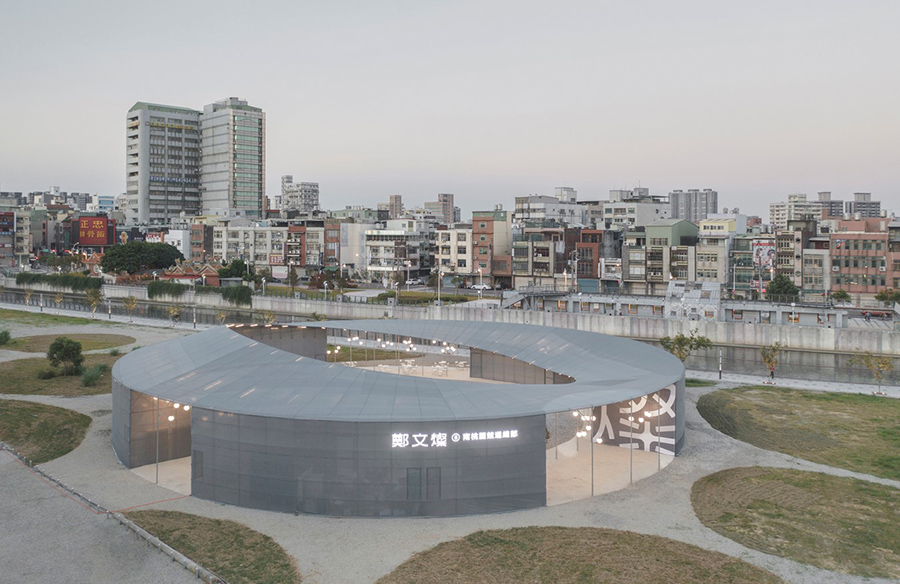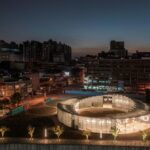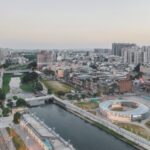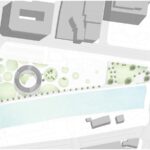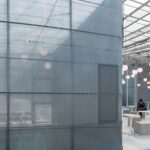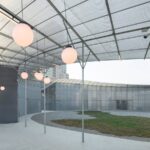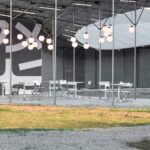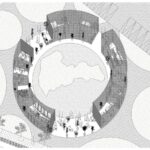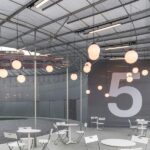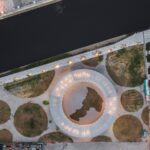Redefining Political Spaces
In the bustling streets of Taiwan during election seasons, the atmosphere is charged with banners, billboards, and campaign vehicles blaring loud music and candidate speeches. However, amidst the chaos, the focus on city management often overshadows the congested urban spaces due to campaign activities.
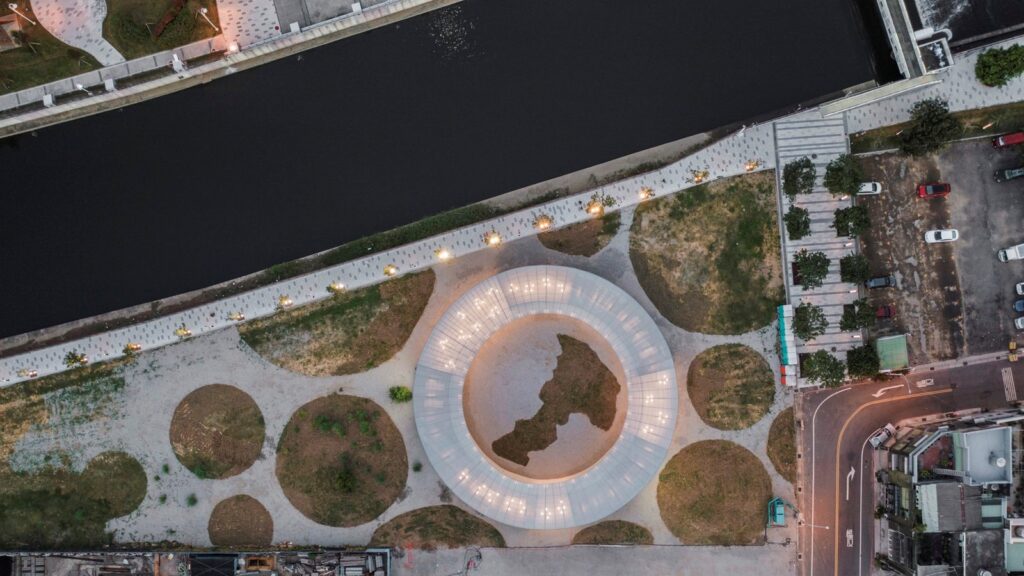
A New Approach
In late 2018, BIAS Architects took on a unique challenge when the Democratic Progressive Party nominated Cheng Wen-Tsan for a second term as Taoyuan city mayor. Tasked with designing a campaign headquarters that not only hosted political activities but also made a statement about urban space, BIAS Architects set out to create a new model for such structures.
The Pavilion Design
In contrast to traditional campaign styles, BIAS Architects envisioned a simple yet modern circular pavilion. Located along the riverbanks of Laojie River in Taoyuan, the pavilion boasted a minimalist design constructed with greenhouse materials, making it easy to assemble and disassemble with minimal environmental impact. Shading nets and translucent plastic foil provided protection from the elements while maintaining a subtle appearance.
Blurring Boundaries
Despite its understated design, the pavilion captured public attention and media acclaim. Its unique circular shape, with an empty center allowing free movement in all directions, challenged conventional spatial norms in politics. By seamlessly merging with public spaces in Taoyuan city, the pavilion blurred the lines between inside and outside, private and public.
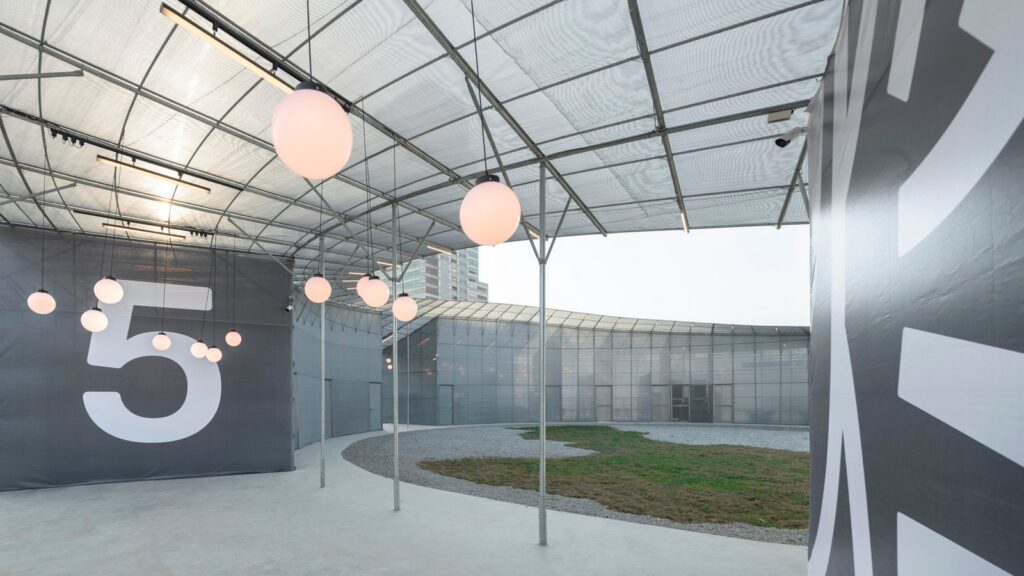
A Contemporary Gathering Space
Functioning as a contemporary agora, the pavilion encouraged interaction among citizens. It housed an open café and a public library room, transforming the campaign headquarters into a versatile and dynamic gathering space for all residents. The central lawn, shaped like a map of Taoyuan, provided a platform for discussions about the city’s future, making the political campaign truly about the community.
Conclusion
BIAS Architects’ innovative design for the Election Campaign Headquarters in Taoyuan exemplifies a transformative approach to political spaces. By reimagining the traditional campaign venue as a dynamic and inclusive public space, the pavilion fostered civic engagement and dialogue, emphasizing the importance of community involvement in shaping the urban landscape.


